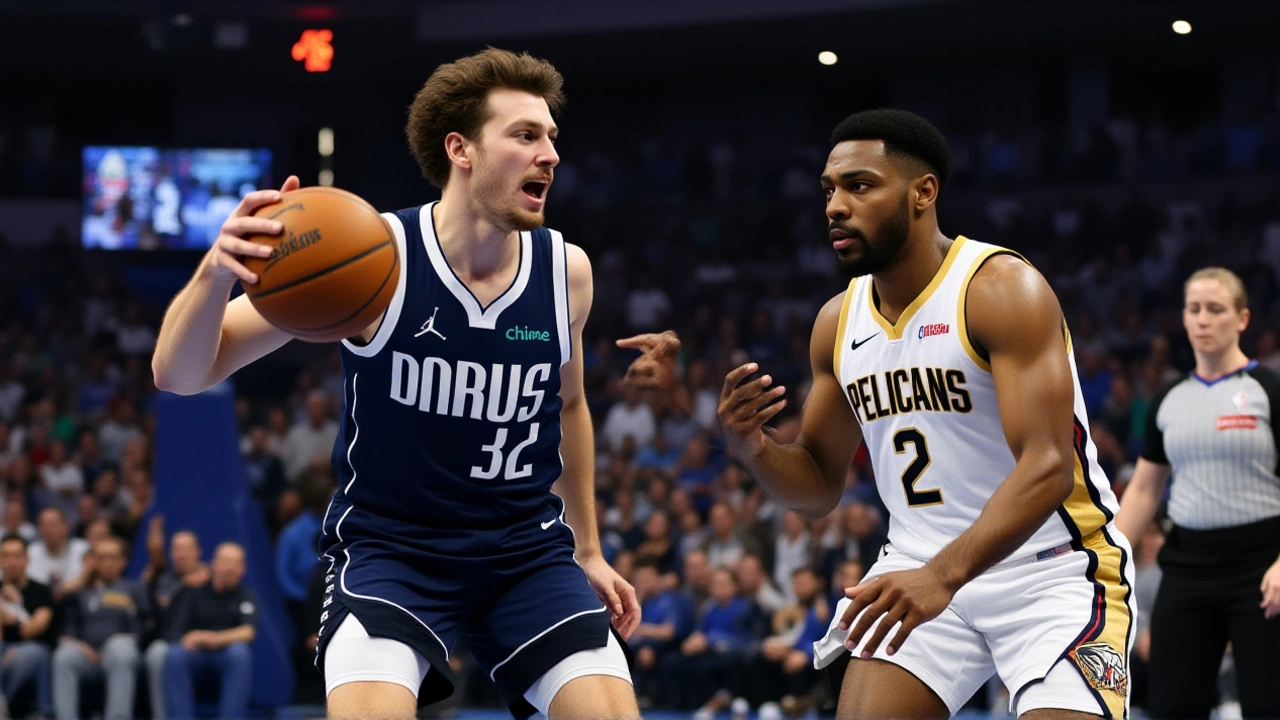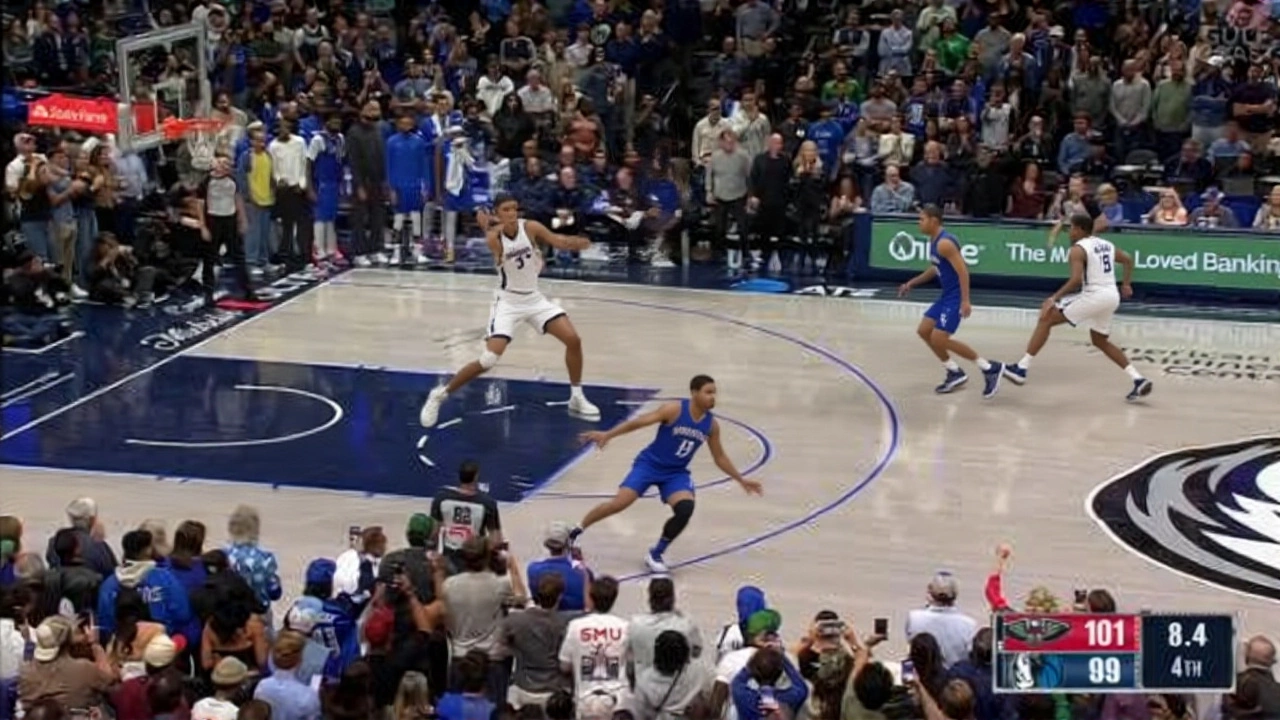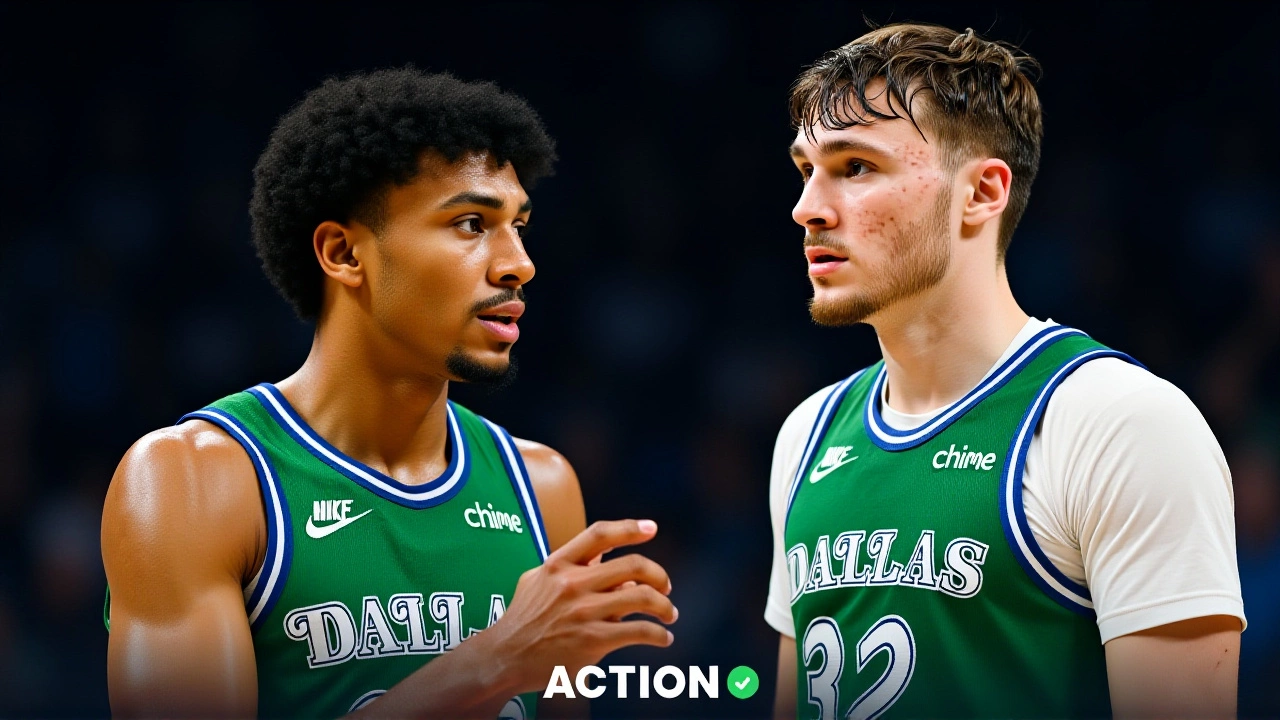When Saddiq Bey hit a step-back three with 12 seconds left, the New Orleans Pelicans didn’t just win a game—they pulled off one of the most unexpected results of the young NBA season. The Pelicans edged the Dallas Mavericks 101-99 on Wednesday, November 5, 2025, at the American Airlines Center in Dallas, Texas, snapping a 14-game road losing streak and handing the Mavericks their fifth home defeat in seven tries. Bey, a 26-year-old forward acquired in a midseason trade last year, dropped a career-high 22 points and grabbed nine rebounds, shooting 8-of-14 from the field and hitting four of his five three-point attempts. It wasn’t just scoring—he was everywhere. Deflecting passes, fighting for loose balls, and even drawing a critical charge on Luka Dončić in the final minute.
What Went Wrong for Dallas?
The Mavericks came in as heavy favorites. Lean’s AI had them at -267 on the moneyline; Action Network pushed it to -310. The point spread? Between -6.5 and -7.5. The over/under hovered around 225-226 points. Everyone expected Dallas to close out another tight game the way they have so often—with Luka Dončić weaving through double teams, Kyrie Irving hitting impossible floaters, and Klay Thompson raining threes in the fourth. But none of it clicked. Dončić finished with 28 points and 10 assists, but shot just 9-of-24. Irving, nursing a sore ankle, was held to 16 points on 5-of-18 shooting. Thompson? He went 1-of-7 from deep and finished with 12 points—under his 15.5 prop line. The Mavericks missed 11 of their last 13 shots in the final 5:30. They turned it over five times in the last three minutes. And for a team that prides itself on late-game poise? It looked like they’d forgotten how to breathe.Pelicans’ Resilience Defies the Odds
New Orleans entered the night with a 2-15 record. Their roster looked more like a developmental squad than a playoff contender. Jeremiah Fears, a rookie point guard, started and played 31 minutes. Herbert Jones, their defensive anchor, held Caleb Martin to just 4 points. And Jordan Hawkins, the second-year guard, hit two clutch free throws with 3.8 seconds left to seal it. The Pelicans didn’t have a single player averaging more than 17 points per game coming in. Yet they outrebounded Dallas 48-41. They forced 17 turnovers. They turned defense into transition, scoring 21 fast-break points. And for the first time this season, they didn’t collapse in the final quarter. The difference? Belief. After losing 12 of their last 13 games, this win wasn’t just about stats—it was about identity.
The Numbers That Tell the Real Story
- 22 points by Saddiq Bey—his highest since joining the Pelicans in 2024.- 12-of-15 from the free-throw line by New Orleans, compared to Dallas’s 9-of-14.
- 38 points in the paint for the Pelicans, despite lacking a traditional center.
- 17 assists by the Pelicans’ collective backcourt—more than Dončić and Irving combined (16).
- Zero players on the Pelicans’ roster averaging more than 18 points per game this season.
Even the advanced metrics tell a shocking tale. Dallas’s net rating in the fourth quarter? -7.3. New Orleans’s? +9.1. The Mavericks led by 11 with 7:12 left. They lost by two. The only thing more surprising than the outcome? The fact that no one saw it coming.
Why This Matters Beyond the Box Score
This isn’t just a win for New Orleans—it’s a signal. The Pelicans have been rebuilding since Zion Williamson’s injury woes began. But this game showed they’re not just collecting draft picks. They’re building toughness. They’re learning how to win ugly. And for a franchise that’s missed the playoffs in four of the last five years, that’s the foundation. Meanwhile, Dallas’s struggles are becoming harder to ignore. They’re 5-13. They’re 1-5 at home. They’re relying too heavily on Dončić to carry them. Kyrie Irving, once a postseason closer, looks hesitant. Klay Thompson, now 35, is clearly fighting through wear and tear. The Mavericks still have talent. But talent without cohesion? That’s a recipe for another early exit.
What’s Next?
The Pelicans head to Memphis on Friday, where they’ll face the Grizzlies—another tough, physical team. But if they play with the same energy they showed in Dallas, they could sneak into the play-in conversation. For Dallas, the next seven days are critical. They host the Warriors on Saturday, then travel to Portland. A 1-4 record over that stretch could trigger serious internal reviews. Coach Jason Kidd has said publicly that he’s “not worried about records,” but privately, sources say he’s pushing for more defensive structure. The question now: Can the Mavericks fix their rhythm before the All-Star break—or will this season become another cautionary tale of wasted potential?Frequently Asked Questions
How did Saddiq Bey’s performance compare to his career averages?
Bey’s 22 points and nine rebounds were both season highs and far above his career averages of 11.4 points and 4.8 rebounds per game. His 8-of-14 shooting and 4-of-5 from three-point range were also career-best efficiency marks in a single game, marking his first 20-point outing since February 2024.
Why were the Mavericks such heavy favorites despite their poor record?
Dallas’s reputation as a deep, veteran-laden team with Luka Dončić and Kyrie Irving overshadowed their 5-13 record. Bookmakers trusted their late-game execution and star power, even as injuries and defensive lapses piled up. Betting markets often weight star players more than team records, especially in high-profile matchups.
Did the Pelicans have any key injuries affecting this game?
Yes. Zion Williamson remains out for the season with a foot injury, and Brandon Ingram missed his 11th straight game due to a hamstring strain. Despite those absences, New Orleans got strong contributions from role players like Jordan Hawkins and Micah Peavy, proving their depth is improving under coach Willie Green.
What does this win mean for New Orleans’ playoff chances?
Still slim, but not impossible. The Pelicans are now 2-15, but the Western Conference is wide open. They trail the 10th-place team by just 4.5 games. If they can string together a few more road wins like this one, they could sneak into the play-in tournament—a scenario that seemed unthinkable two weeks ago.
How did Klay Thompson’s performance impact the game?
Thompson’s 12-point, 1-of-7 shooting night was a major factor. He’s typically a 40% three-point shooter, and his absence from the arc opened driving lanes for the Pelicans. With Thompson off his game, Dallas lost its most reliable spacing weapon, forcing Dončić to create everything himself—and he couldn’t do it alone under pressure.
Is there a pattern emerging in Dallas’s losses?
Yes. In their five losses, the Mavericks have allowed opponents to shoot 49% from the field and averaged 110.2 points. They’ve also lost all five games by 10 points or fewer. Their problem isn’t scoring—it’s closing. They’ve blown double-digit leads in four of those losses, and their bench has been outscored by an average of 12.6 points per game.

